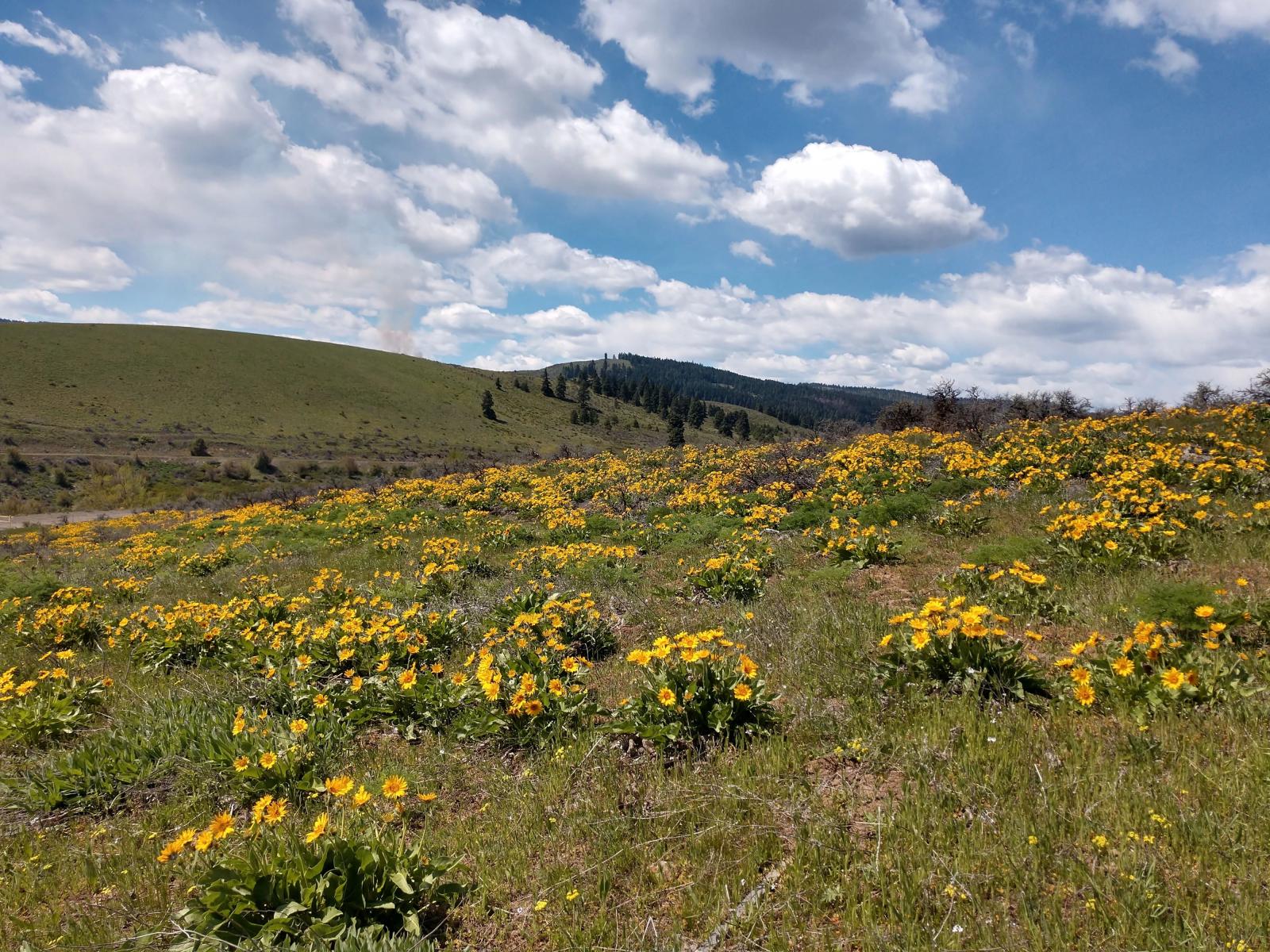ARCHIVED NEWS RELEASE
This document is provided for archival purposes only. Archived documents
do not reflect current WDFW regulations or policy and may contain factual
inaccuracies.
News release Jan. 24, 2024
OLYMPIA – The Washington Department of Fish and Wildlife (WDFW), Washington State Conservation Commission (SCC), and Washington State Department of Natural Resources (DNR) today announced the release of the draft Washington Shrubsteppe Restoration and Resiliency Initiative (WSRRI) Long-term Strategy. The three agencies, charged with leading the development of a long-term conservation strategy for Washington’s shrubsteppe landscape, are now asking the public to provide input on the draft strategy. Comments are being accepted through Feb. 21.
Following historic wildfires in 2020 that burned over 600,000 acres of shrubsteppe habitat in the state, the Washington Legislature directed WDFW, SCC, and DNR to take immediate action to address the impacts of the fires and provided funding to restore shrubsteppe habitat, support at-risk shrubsteppe wildlife species, and support working lands that are vital for maintaining these habitats and species. The Legislature also directed the agencies to collaboratively produce a long-term strategy for proactively addressing threats facing this landscape.
“Washington's shrubsteppe habitat, wildlife, and communities are facing many threats, so protecting and restoring remaining shrubsteppe habitat is more important than ever," said Kelly Susewind, WDFW director. "We're excited to be able to bring these opportunities to landowners and managers to benefit both wildlife and working lands.”
“SCC is thrilled to help in revealing this long-term strategy draft. This plan is fruition of almost two years of dedicated collaboration with WDFW and DNR and underscores our steadfast commitment to a close working relationship and partnership,” said James Thompson, SCC executive director. “We extend our gratitude for this meaningful collaboration with our fellow agencies and eagerly anticipate that this work will leave a lasting impact on this landscape for years to come.”
“Washington's shrubsteppe provides critical habitat for iconic Western species like sage grouse, homes and livelihoods for many eastern Washingtonians, and vital hunting, gathering, and ceremonial lands for eastern Washington's indigenous communities,” said Commissioner of Public Lands Hilary Franz, the elected official who oversees DNR. “Post-fire recovery is a critical need in Washington state, but it is particularly important in these communities affected most often and most critically by wildfire.”
The draft WSRRI Strategy (PDF) is now available to review online or at select WDFW regional offices and DNR field offices. Comments can be submitted online at publicinput.com/wsrristrategy, by email at shrubsteppestrategy@publicinput.com, or by phone at 855-925-2801, project number 1838.
All members of the public are invited to share their perspectives and participate in this public feedback opportunity regardless of race, color, sex, age, national origin, language proficiency, religion, sexual orientation, gender identity and/or expression, status as a veteran, or basis of disability.
WDFW, SCC, and DNR have led a collaborative process with input from tribes and a wide range of stakeholders invested in shrubsteppe management to develop this long-term strategy. The strategy presents a comprehensive and cohesive set of goals, objectives, and actions to better conserve and restore Washington’s shrubsteppe landscape in the face of the increasing threat of wildland fire and other threats. The strategy includes a wildlife habitat restoration program to coordinate and share resources and services at the landscape scale and an improved wildland fire protection and response to protect shrubsteppe habitat, wildlife, and people. The strategy also prioritizes locations to focus these efforts.
More information about the WSRRI and the long-term collaborative strategy for shrubsteppe conservation is available online.
The Washington Department of Fish and Wildlife works to preserve, protect and perpetuate fish, wildlife and ecosystems while providing sustainable fish and wildlife recreational and commercial opportunities.
The Washington State Conservation Commission is the coordinating state agency for all 45 conservation districts in Washington State. Together, the SCC and conservation districts provide voluntary, incentive-based programs that empower people to practice conservation and ensure healthy natural resources and agriculture for all.
Administered by Commissioner of Public Lands Hilary Franz, the Washington Department of Natural Resources manages more than 5.6 million acres of state-owned forest, range, commercial, agricultural, conservation, and aquatic lands. Of these, more than half are held in trust to produce income to support public schools and other essential services. State trust lands managed by DNR provide other public benefits, including outdoor recreation, habitat for native fish and wildlife, and watersheds for clean water.
